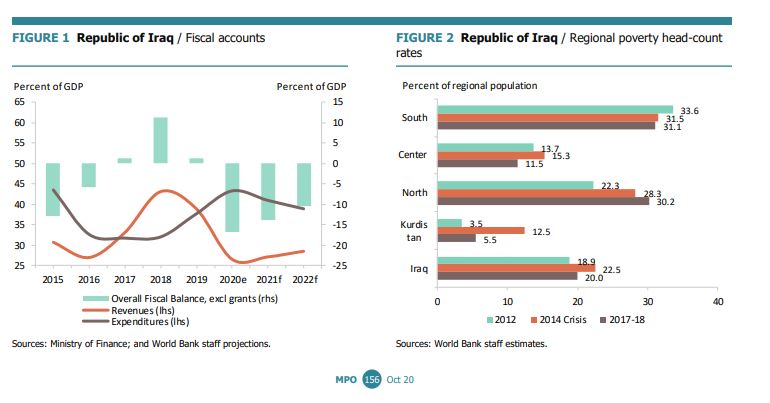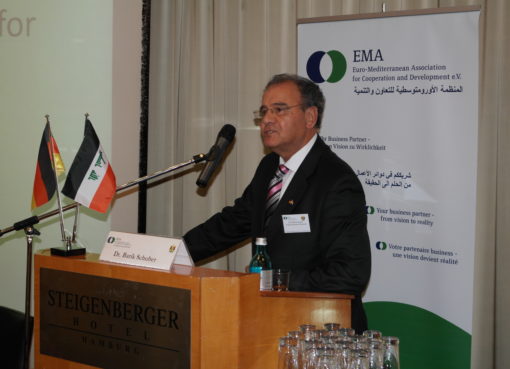Iraq’s economy is expected to contract in 2020 due to lower oil prices and the spread of COVID-19. The twin deficits are mounting as a result, reversing the declining trend on public debt and adding pressure on the exchange rate and central bank reserves. Weaker oil prices, budget rigidities as well as cuts to pro-growth program and the slow implementation of structural reforms are all upstream risks to the economic outlook that will hinder advancing human capital formation and job creation.
Faced with this multifaceted crisis, Iraq’s growth is expected to contract by 9.5% in 2020, the worst annual performance since 2003. Oil-GDP is contracting by 12%, capped by the OPEC+ production agreement, while non-oil GDP is contracting by 5% as services sectors are affected by COVID-19 mitigation measures, especially the all-important religious tourism. Subdued domestic demand and the depreciation of the Iran and Turkey’s currencies vis-à-vis the Dinar have kept inflation checked. Headline and core inflation registered only 0.4 and 0.7% rise in first 7 months 2020 (y/y).
The outlook for Iraq is highly uncertain and will depend on the evolution of global oil markets, the capacity of the Iraqi health care system to respond to the pandemic, and the reform process. If conditions ease, growth is projected to gradually return to 2.0-7.3% in 2021- 2022 with non-oil economy projected to bounce back to an average of 4% in 2021-22.
To read the full report please click on this link:








Comment here